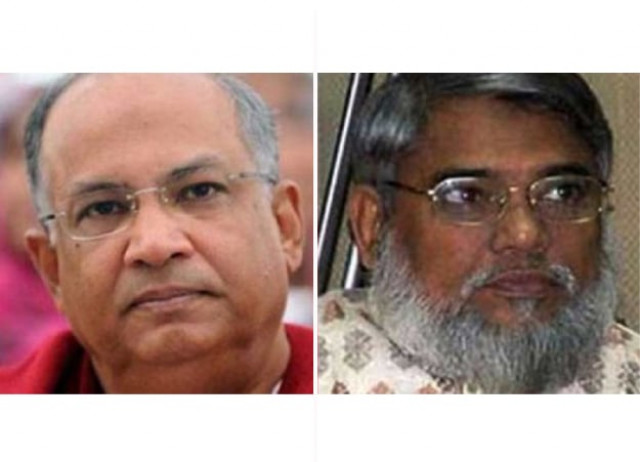Hangings in Bangladesh
Salauddin Quader Chowdhury and Ali Ahsan Mojaheed had been convicted of war crimes related to the events of 1971

Ali Ahsan Mohammad Mujahid (R) and Salahuddin Quader Chowdhury (L). PHOTO: AFP
It is also hard to view these executions outside the political environment of Bangladesh. Both of the men executed were prominent opposition political figures and had held government posts under past regimes. Opposition figures are now claiming the executions to be politically motivated and an attempt to eliminate key political personalities. Clarity in this matter is unlikely to be forthcoming in the foreseeable future. The wounds of 1971, on both sides, are far from healed and the execution of the two men will do nothing to accelerate the healing process or lessen the trust deficit between the two states. For its part, Pakistan must adjust the levels of rhetoric in line with historical reality. Bangladesh has protested against the Pakistani Foreign Office raising concerns over the hangings. We need to understand that a failure to acknowledge where we went wrong in our dealings with East Pakistan after 1947 will make it far less likely for the other side to understand our point of view. For both sides, the colonial legacy remains toxic; indeed it is toxic for the entire subcontinent. Hanging old men following a trial whose fairness is under serious question carries nobody forward.
Published in The Express Tribune, November 25th, 2015.
Like Opinion & Editorial on Facebook, follow @ETOpEd on Twitter to receive all updates on all our daily pieces.














COMMENTS
Comments are moderated and generally will be posted if they are on-topic and not abusive.
For more information, please see our Comments FAQ